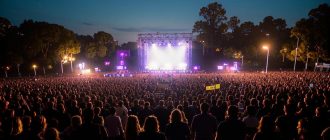Since Africa ceased to be a colony, civil wars have been raging ever since. The average person has no idea what is happening in Somalia, for example. Except that people in that country have been fighting each other for decades. And this is only the most famous example, and how many there really are, probably no one will answer for sure.
Few people would notice if another conflict arose in an African nation. But one day it didn’t. Thanks largely to Francois Pienaar – captain of the South African rugby team. We tell you what is his merit to his native country.
Politics: reasons for hatred between blacks and whites
Even before South Africa became independent, the authorities restricted the rights of black people. When the Second World War broke out, the government of the Union of South Africa – as the state was then called – was divided. Two parties sat in parliament: the pro-British party, which insisted on entering the war on the side of the Allies, and the Boer party, which held far-right views. The nationalists supported the policies of the Third Reich and believed that the country should enter the war on the side of the Axis.
It so happened that it was the Burk party that won the first post-war elections. After coming to power, they began a policy of oppressing the black population. The party’s slogan was “South Africa for Whites”. Dark-skinned people were moved to reservations, the main part of the country was closed to them. They were deprived of citizenship, banned from participating in elections, mixed marriages, education and medical care, and prevented from getting full employment.
President Nelson Mandela and the first Rugby World Cup
After independence was declared, an illegal party, the African National Congress, emerged. Nelson Mandela was a member of it. At first, the party tried to fight the ruling regime with adequate methods, but after the shooting of a peaceful demonstration it turned to armed resistance. Mandela was eventually imprisoned: he was sentenced to life imprisonment and spent 27 years behind bars. After his release, Mandela continued to fight for black rights and finally won the presidential election in 1994. Indigenous people once again had rights, but the gulf between the races remained huge. People of color hated each other, and civil war could break out at any moment.
In honor of the overthrow of apartheid, the International Rugby Board allowed South Africa to host the World Cup. Rugby in Africa was considered a sport for whites and was seen as one of the symbols of the fallen regime. It was absurd to the extent that during matches the black population supported the opposing teams. After watching one of the games, Nelson Mandela invited the captain of the team – Francois Pienaar. The president told the athlete about the desire to unite the nation around the national team. It was then that the slogan “One country, one team” appeared.
Francois Pienaar: from youth games to the South African national team
Francois Pienaar was born in Vereeniging into a family of Afrikaners, the name given to the descendants of Dutch settlers. Rugby first entered the boy’s life at the age of six. Most of his career he spent on the position of flanker. The main task of players of this role – to take the ball from the opponent. Francois played at youth level until graduation, after which he went to university and received a sports scholarship. During his student years Pienaar began to be called up to the youth national teams of South Africa.
Having finished studying, Francois signed his first professional contract. The athlete began to play for the team “Transvaal”, which represented the province of the same name in domestic competitions in South Africa. For this club Pienaar spent more than 100 games, and in most of them he was the captain of the team. He was called up to the main national team in 1992 and from the first to the last match was its captain. His first game was against New Zealand in the Tri Nations Cup.
After a meeting with the president, François was imbued with the idea of uniting the country. The first thing the team began to organize meetings with the black population to tell them about rugby and its rules. Then the “antelopes”, as the South African rugby team is called, decided to take the unprecedented step of inviting black players to the team. Pienaar did for the national team what Nelson Mandela did for the whole country. They combined symbols that are meaningful to different races. For example, the national team started singing the anthem in its entirety, which was in two parts.

The path of the unpromising “antelopes” to the World Cup finals
The South African team was considered the weakest among the participants of the games, so no one expected high results from it. Ironically, the first match at the World Cup was to be held against the reigning champion Australia. And this game was a real sensation! The underdog, which no one took seriously, beat the world champion with a score of 27:18.
The next opponent of South Africa was Canada, which could not resist the hosts of the tournament at all. The result was 20:0. Quite a confident bid to get out of the group, but it was not enough for the “gazelles”. So they won their third victory, beating Romania 21:8. In the quarterfinals they had to take the field against Western Samoa. At that time, this team represented a serious force and had experience in the playoffs. The South African team again surprised everyone by defeating the opponent with a score of 42:14.

In the semifinals, the Antelopes faced another strong team – the French national team. It seemed that now these upstarts from Africa will definitely be put in their place, because to beat the reigning European champion in the semifinals of the World Cup, to put it mildly, not easy. But Francois and company once again prevailed and reached the final.
South Africa’s first ever win at the Rugby World Cup
Before the main match of the tournament, Nelson Mandela visited the team’s training session. He personally talked to each of the players and thanked them for what they had achieved. In return, the athletes presented him with a national team baseball cap. On the day of the match, the president appeared on the stand: he was wearing the national team jersey with the captain’s number and the same baseball cap.
The hosts played from defense, as they understood that there was little chance to win in a match with such an opponent as New Zealand. Every mistake could cost them the victory. The game plan succeeded: in regulation time the opponents failed to score from the game. New Zealand opened the scoring with a penalty kick. Very soon, the hosts were able to equalize the score with a penalty kick. Later, the teams exchanged penalty kicks once again. Finally, the South African team took the lead. It is impossible to describe what was happening in the stands at that moment.

New Zealand managed to equalize only in the second half. Then, at the very end of the game, a visiting player tried to score a drop goal – kick the ball with his foot so that it flew into the scoring zone. The stadium froze, but the attempt didn’t count. The game went into extra time, the rivals again exchanged results. And finally, seven minutes before the end of extra time, the Gazelles set the final score. After waiting for the remaining few minutes, the South African national team became world champions for the first time in history.
Winning the championship as a step towards unification
Nelson Mandela came onto the pitch in the same jersey and cap to present the trophy to the captain. Francois Pienaar dedicated this victory not only to those who came to the stadium, but to the entire nation. Perhaps it was the moment when the rugby players lifted the trophy above their heads that united the country, prevented war and saved a huge number of lives.
Unfortunately, the World Cup achievement was the only one of Pienaar’s career. He played only 29 games for the national team before ending his career at the age of 29 and heading to England, where he worked briefly as a coach. Despite the move, he maintained a warm relationship with Nelson Mandela. The former president even became godfather to his children.
Francois Pienaar hasn’t had a high-profile career on the international stage, nor does he have a huge trophy room. But what he has done for his country is far more important than any award.





